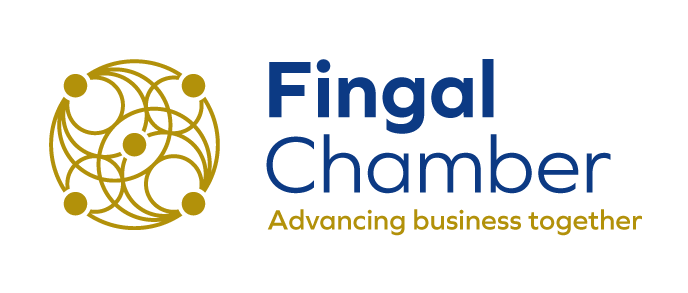The Wider Impact of the EU Pay Transparency Directive on Irish Employers
The EU's Pay Transparency Directive came into effect in 2023 and Ireland, like other EU countries, will be required to implement a range of new pay transparency measures by 2026. The key aims of the Directive are to reduce gender pay gaps and to make pay information more accessible to more stakeholders. While the Directive is not yet in full force, Irish Employers should nevertheless consider how these new pay transparency measures could impact operations once they are fully implemented.
Key Components of the EU Pay Transparency Directive
While Ireland has already legislated for gender pay gap reporting, the Directive will require greater pay transparency both before and during the employment relationship. The key measures are set out below:
Pay Transparency Prior to Employment
The Directive will require Employers to disclose the initial pay level or salary range for a position either in job advertisements or before the interview. Employers are also prohibited from asking prospective Employees about their pay history during the recruitment process.
Access to Pay Information
Employees will have the right to request pay data, including information on average pay levels by gender, for roles that are comparable in terms of skills and experience. These rights aim to allow Employees to identify potential gender-based pay disparities.
Gender Pay Gap Reporting Requirements
Ireland’s mandatory gender pay gap reporting regime has been in place since 2022. Organisations with 50 or more Employees will be required to report their gender pay gap in 2025. The Directive includes an additional legal requirement to report gender pay gaps between different “categories of workers” performing the same work or work of equal value. A restaurant for example might need to categorise the pay information of chefs and wait staff. This additional data will not be disclosed in the publicly available gender pay gap report, but it will be accessible by Employees and their representatives.
Transparency in Pay and Career Progression
Employers will need to ensure pay structures and progression criteria are transparent and accessible. Any discrepancies that arise must be based on objective, gender-neutral factors, which can be publicly verified.
Enhanced Employee Protections
The Directive strengthens protections against pay discrimination. Employees who report concerns about pay discrimination will be protected from penalisation.
The Burden of Proof
The Directive shifts the burden of proof onto the Employer in pay discrimination claims. Currently, to make a discrimination claim, Employees must submit facts that establish a presumption that unfair treatment has taken place. Under the Directive, this step is removed, and Employers will have to prove that no discrimination occurred once a claim is made.
Specific Implications for Employers
Enhanced Data Collection and Reporting
Organisations will need to implement payroll reporting systems to collect, analyse, and report pay data. For some, this may require investment in new HR or payroll systems that can segment pay data by gender and role.
Review and Adjustment of Pay Practices
Many Irish Organisations may need to conduct internal audits to identify pay gaps and assess pay structures. This would include analysing pay disparities for Employees in similar roles or categories. If a pay gap of greater than 5% is identified without objective justification, corrective action will be required, potentially impacting budgeting and payroll planning.
Increased Administrative Burden and Compliance
Compliance with the Directive will entail more frequent and detailed pay reporting, especially for Organisations that already fall within the scope of gender pay gap reporting legislation. Organisations with more than 50 Employees will need to establish gender pay gap reporting protocols from 2025.
Impact on Employee Relations
The Directive may elicit more open conversations around pay and career progression within Organisations that may have an impact on Employee satisfaction and retention. On the flip side, Organisations may also see increased engagement from Employees in salary discussions, as workers become more aware of their rights and broader pay levels across categories.
Potential Legal and Financial Implications
Failure to comply with the Directive or to address unjustified pay gaps could result in legal action and financial penalties. Organisations may also face reputational risks if significant pay gaps are identified, which could impact talent attraction and retention.
Preparatory Steps for Employers
Conduct a Pay Audit
Begin by conducting internal audits to identify any gender pay gaps and investigate if they are justifiable based on objective, non-gender-related factors.
Revise Pay Structures and Policies
Review and, if necessary, revise pay structures, job descriptions, and career progression criteria to ensure transparency and fairness.
Enhance HR Data Systems
Implement or upgrade HR and payroll systems to ensure they can generate the required data on pay by gender and other relevant categories.
Educate and Train Staff
Train HR personnel and management on the new requirements and ensure that hiring managers understand the Directive’s rules regarding pay transparency in recruitment.
Develop Communication Strategies
Be prepared for increased Employee inquiries into pay structures and potential pay gaps. Having clear, transparent communication around these issues will help foster trust.
We recommend that Organisations start considering the impact of these pay transparency measures before they become legal requirements. By doing so, Employers can reduce the risk of claims and potentially improve Employee trust and overall Organisational transparency.
Adare is a team of expert-led Employment Law, Industrial Relations and best practice Human Resource Management consultants. If your Organisation needs advice, support, or guidance about compliance requirements or any HR issues, please contact Adare by calling (01) 561 3594 or emailing info@adarehrm.ie to learn what services are available to support your business.
